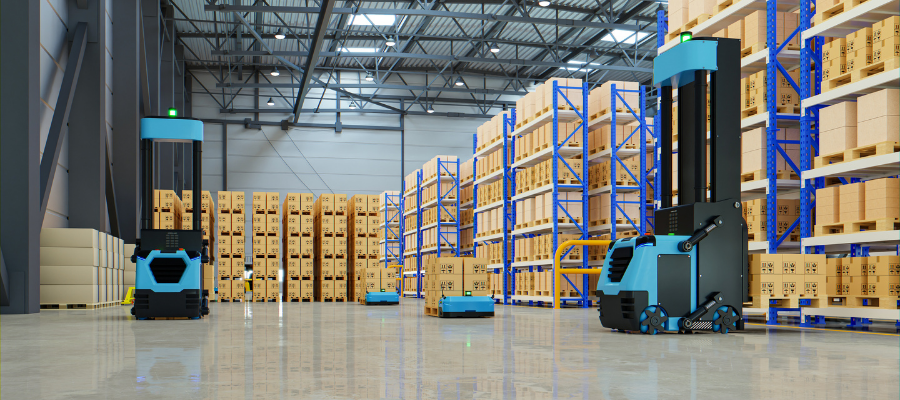🕒 Article read time: 2 minutes
Driverless forklifts – a potential solution to warehouse skills shortages?

Qualified forklift drivers are becoming harder to find, according to Logistics UK’s recent Skills and Employment Update.
The report shows there were 17.4% fewer forklift drivers overall in employment in Q4 2021 compared with Q4 2019. The problem is even more acute in Europe – there were 34.6% fewer EU forklift drivers available across the same period.
POOL OF DRIVERS IS SHRINKING, EMPLOYMENT COSTS RISING
The pool of qualified forklift drivers actively looking for work is also shrinking. The numbers claiming Jobseeker’s Allowance fell by 43.2% to 230 in Q4 2021 compared with Q4 2019.
Unsurprisingly, employment costs in the warehouse sector are also rising. In November 2021, wages advertised on online job search engine Adzuna for forklift drivers and order pickers were 8% higher than a year previously, with vacancies for forklift drivers surging by 169%.
All these factors are combining to make the switch to autonomous vehicles look increasingly attractive to many warehouse operators.
THE ADVENT OF AUTOMATED GUIDED VEHICLES
VisionNav Robotics is one of the leading developers of automated guided vehicles (AGVs), which provides automated material handling with visual AI navigation technology. At least two Logistics UK members – Nestle and DHL – are among the many high-profile businesses to have adopted a driverless forklift truck system from VisionNav.
The ‘vision-based’ navigation technology uses a vehicle-mounted camera to sense the environment in which the forklift truck is operating. For warehouses that operate 24x7, the forklifts can operate in dark light conditions to finish transfer and stacking tasks, long after the day shift has gone home.
As well as being highly efficient, this visual navigation technology can lead to a quick return on investment – typically estimated to be between 18 to 24 months.
WAREHOUSE SECTOR – AN EARLY ADOPTER OF AUTONOMOUS VEHICLES
Phil Lloyd, Head of Engineering Policy, Logistics UK, said: “Warehousing is one area of logistics where we are likely to see the early adoption of autonomous vehicles. The growing pressures on staff recruitment and retention in warehousing are likely to accelerate the adoption of this emerging technology, which promises to herald a step change in optimising efficiency in the UK’s warehouses and distribution centres.”
*http://logistics.org.uk/services/supply-chain-consultancy/warehouse-improvement-and-optimisation-service/warehouse-design-and-automation
Published On: 03/03/2022 16:00:50

Comments Section
If you are a Logistics UK member login to add comments.